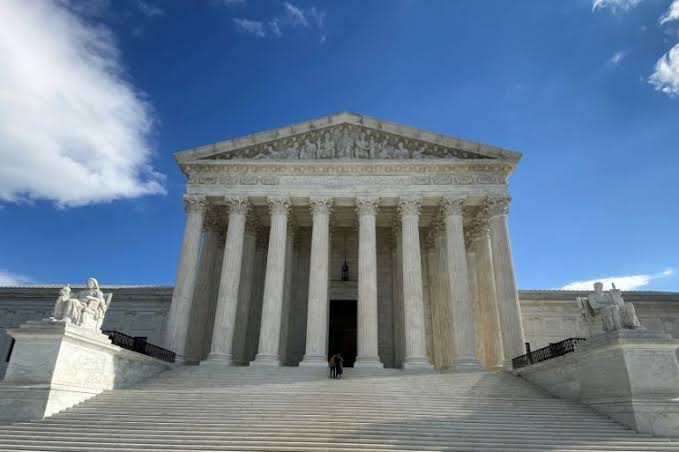The U.S. Supreme Court has temporarily blocked the Trump administration from deporting a group of Venezuelan migrants accused of gang affiliation under the rarely used 1798 Alien Enemies Act. The decision followed an emergency legal push by the ACLU, which argued that the migrants were being denied due process. Justice Samuel Alito, joined by Justice Clarence Thomas, issued a late-night dissent calling the intervention “premature” and “legally questionable.”
The controversy grew after the deportation of Kilmar Armando Abrego Garcia, a Maryland resident wrongfully sent to a prison in El Salvador. Senator Chris Van Hollen, who met Abrego Garcia last week, accused the administration of ignoring court orders to facilitate his return and using unsubstantiated allegations to justify its actions. Federal courts have found no credible evidence tying Abrego Garcia to any gang, despite the administration citing a Chicago Bulls hat and a past traffic stop.
Also read:South African Politician Faces Backlash Over Visit to Controversial Pastor in Malawi
Calls are mounting for the administration to be held in contempt of court. Senator Amy Klobuchar suggested the appointment of a special prosecutor to investigate officials involved in the deportation. Meanwhile, Senator John Kennedy, a Republican, acknowledged the deportation was a “screw up” but argued Trump lacks the authority to secure Abrego Garcia’s return.
The case has sparked a broader debate over constitutional rights, due process, and habeas corpus. Critics say the administration is exploiting wartime laws to bypass legal protections and fast-track removals without hearings. The ACLU is now engaged in legal battles across nine courts, attempting to halt similar deportations.
Amid the legal turmoil, Pope Francis quietly met Vice President JD Vance in Rome after recently criticizing the administration’s immigration policies and calling on Catholics to reject anti-immigrant rhetoric.

